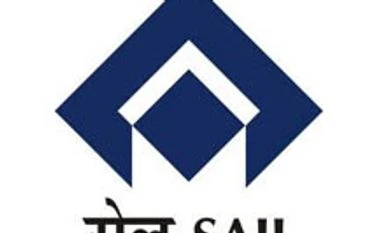“The average price of coking coal was around $186 per tonne in 2012-13, which has come down to $150 per tonne currently. Despite this, our margins have shrunk mainly because of dip in the rupee and selling prices,” Sail chairman and managing director CS Verma told Business Standard.
The company's coking coal requirement is 13.3 million tonne annually with import comprising around 70%. Coking coal is used in blast furnace for producing steel. About two third of the imports come from the Australian market, while rest comes from the US and a small proportion from New Zealand.
More From This Section
Verma said input prices have come down by 8-10% but there was in decline in per tonne realization by the same percentage. The net sales realisation declined by 10.92% in the fourth quarter to Rs 34,481 per tonne from Rs 38,717 per tonne in the same quarter previous year. For the whole year, it was down by 2.19% for the year 2012-13 as a whole to Rs 36,389 per tonne from Rs 37,202 per tonne. Sail took a dip of Rs 877 crore only on account of lower net sales realisation for the full year and Rs 1,347 crore for the Q4 alone because of slowdown in the global steel sector which impacted domestic market as well.
Domestic steel production grew by just 2.5% in the last financial year. Despite such weak domestic conditions, Verma is optimistic about retail prices. “Whatever dip (in prices) had to happen has happened. In the last five to six months, the prices have stagnated and there is no scope of prices going down further." The demand would also pick up especially since the country is planning for $1 trillion investment in infrastructure sector that creates huge market for steel.
Though Sail’s net profit came down by about 72% in the fourth quarter (Jan-Mar 2013) to Rs 446.53 crore from Rs 1,576.98 crore a year ago, the company is going ahead with its planned investment. It is investing about Rs 72,000 crore for modernization and expansion of its plants and mines. Out of the total investment, around Rs 39,000 crore will be invested in expanding capacity, Rs 10,000 crore in expansion of captive iron ore mine, Rs 7000 crore each for value added products and sustainance. Another Rs 3,500 crore would go into technology upgradation.
Though the ban on iron ore mining has hit other steel companies, the government-controlled Sail that used 22.4 million tonne ore last year, does not have worries on this account due to access to captive mines. In the case of coal, domestic supply is largely sourced from Coal India while its own mines produce about 0.5 MTPA. Sail, through ICVL (international coal ventures ltd) is also looking at acquiring coal mines outside India. ICVL is conducting due-diligence on three to four mines in Australia, the US and Mozambique, said Verma, who also heads ICVL.
)